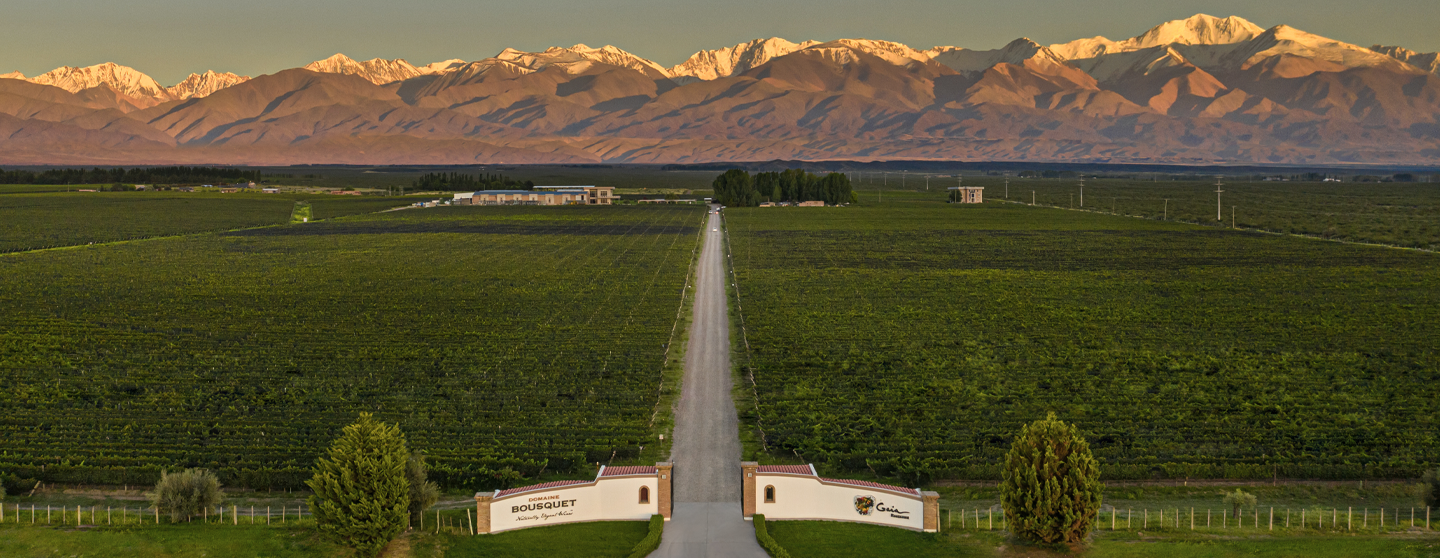

Domaine Bousquet

Mendoza, Argentina
December 2022
Agricultural Processing
Agriculture/Growers
Argentina
Domaine Bousquet nació cómo bodega pionera de Gualtallary, Valle de Uco, al final de la década de los 1990. Un terroir virgen que encontramos hace más de 20 años. Eran tierras áridas en las que creímos y sembramos nuestros sueños y , por sobre todas las cosas, nuestro futuro. Por eso, estamos orgullosos de recibir esta nueva certificación que confirma nuestro amor por la tierra, por las personas , por el medio ambiente y la sustentabilidad.. Por todo lo que creíamos desde hace tiempo y seguimos confirmando. Ser empresa B corp significa apostar a una economía sostenible para las personas y el medioambiente. Para poder lograr esta certificación se cumplieron con estrictos estándares verificados de desempeño social , ambiental , transparencia y responsabilidad. La certificadora, Sistema B es una organización sin fines de lucro que cree que los gobiernos, las organizaciones de la sociedad civil, los movimientos sociales, los ciudadanos y la responsabilidad social de los negocios deben trabajar junto a las Empresas B y otros actores económicos en América Latina, para construir una nueva economía más justa, equitativa y regenerativa para las personas y el planeta. El suelo virgen de Gualtallary marca nuestro inicio de amor por la tierra y que protegemos por más de 25
Overall B Impact Score
Governance 14.0
Governance evaluates a company's overall mission, engagement around its social/environmental impact, ethics, and transparency. This section also evaluates the ability of a company to protect their mission and formally consider stakeholders in decision making through their corporate structure (e.g. benefit corporation) or corporate governing documents.
What is this? A company with an Impact Business Model is intentionally designed to create a specific positive outcome for one of its stakeholders - such as workers, community, environment, or customers.
Workers 22.7
Workers evaluates a company’s contributions to its employees’ financial security, health & safety, wellness, career development, and engagement & satisfaction. In addition, this section recognizes business models designed to benefit workers, such as companies that are at least 40% owned by non-executive employees and those that have workforce development programs to support individuals with barriers to employment.
Community 18.8
Community evaluates a company’s engagement with and impact on the communities in which it operates, hires from, and sources from. Topics include diversity, equity & inclusion, economic impact, civic engagement, charitable giving, and supply chain management. In addition, this section recognizes business models that are designed to address specific community-oriented problems, such as poverty alleviation through fair trade sourcing or distribution via microenterprises, producer cooperative models, locally focused economic development, and formal charitable giving commitments.
Environment 28.8
Environment evaluates a company’s overall environmental management practices as well as its impact on the air, climate, water, land, and biodiversity. This includes the direct impact of a company’s operations and, when applicable its supply chain and distribution channels. This section also recognizes companies with environmentally innovative production processes and those that sell products or services that have a positive environmental impact. Some examples might include products and services that create renewable energy, reduce consumption or waste, conserve land or wildlife, provide less toxic alternatives to the market, or educate people about environmental problems.
What is this? A company with an Impact Business Model is intentionally designed to create a specific positive outcome for one of its stakeholders - such as workers, community, environment, or customers.
Customers 2.2
Customers evaluates a company’s stewardship of its customers through the quality of its products and services, ethical marketing, data privacy and security, and feedback channels. In addition, this section recognizes products or services that are designed to address a particular social problem for or through its customers, such as health or educational products, arts & media products, serving underserved customers/clients, and services that improve the social impact of other businesses or organizations.